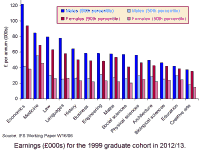I was originally going to write a bit on the crisis in Europe. However, when I started looking for the chart that sparked off the idea, I stumbled upon The Economist’s Daily Chart section (you can see it here).
Essentially the lovely people over at The Economist publish a chart every day on pretty much everything. Not only are they extremely shiny, they are also usually both topical and interesting. They even have an advent calender!
So apart from all of the eye candy, just why are graphs so awesome? I think they allow you to summarize a huge amount of what’s going on in just a small area. Not only that but they can be great tools on which to frame a discussion. Here are some charts that I found particularly interesting:
1. European Borrowing and Lending

This graph shows how much banks have been able to raise in the bond markets. Put simply, how much extra cash they have managed to get invested into their business. Investors in exchange for providing this money now, get a rate of return on what is called a bond. The graph firstly shows that banks are having major issues in getting more cash, which they need to meet the new Basel Rules*. Secondly it shows that investors are unwilling to issue these bonds unless they are covered. A covered bond is a bond which is linked to an asset proportional in value to the bond issued. So if the bank cannot pay the bond interest then the investors can take control of the asset to get their money back. Fundamentally this graph shows just how little liquidity and how much paranoia is driving the behaviour of European banks.
*(Basel 3 is the latest set of guidelines issued for global banking. Passed after the financial crisis they required banks to keep a far greater proportion of their assets as cash, the kind of money you carry around in your pocket everyday, as opposed to investments, say mortgages)
2. Bribery and Corruption
This graph shows perceived corruption within the public sector on the Y-axis against a survey-based score for how likely private companies are to engage in bribery on the X-axis. A higher score suggests bribery is less common. It is worth noting that the companies Bribe Payers Index is the likelihood of companies using bribes when doing business in foreign countries. There are some interesting results here. Italy and Turkey rank as the most corrupt amongst the OECD (developed) countries. Hong Kong has one of the least corrupt administrations in the world, despite being part of the China which ranks quite poorly on this scale. Perhaps unsurprisingly the Russian oligarchy is bringing up the rear amongst the major economies.
3. Dangerous Places
 When it comes to crime it is often very difficult to make comparisons between countries, partly because the chance of a crime being reported differs greatly across cultures. One of the better measures to get around thus problem are murder rates, as murders tend to be reported. It seems that less developed countries have higher murder rates. Rather surprisingly while Mexico hasn’t topped the chart, they didn’t even make the top ten. Afghanistan has a lower homicide rate than the USA. Quite whether this makes Afghanistan a safer country would be hard to believe.
When it comes to crime it is often very difficult to make comparisons between countries, partly because the chance of a crime being reported differs greatly across cultures. One of the better measures to get around thus problem are murder rates, as murders tend to be reported. It seems that less developed countries have higher murder rates. Rather surprisingly while Mexico hasn’t topped the chart, they didn’t even make the top ten. Afghanistan has a lower homicide rate than the USA. Quite whether this makes Afghanistan a safer country would be hard to believe.
http://www.zerohedge.com/news/charting-fundamental-cash-supply-demand-dilemma-europe
http://www.economist.com/blogs/dailychart/2011/11/bribe-payers-index
http://www.economist.com/blogs/dailychart/2011/10/homicide-rates
Disclaimer: All of the charts here are reproductions from the websites linked above.



